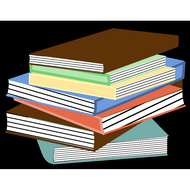
(View Complete Item Description)
Abstract
Studies in Mythology is an introductory text for a survey of myth course. It can be organized chronologically, geographically, or thematically. Included are sections from Frazier's study of myth, The Golden Bough, as well as Dante's Inferno and sections on tricksters and Irish myth. The book focuses on world mythologies and archetypal approaches to the analysis of myth.
Description
Text includes sections on responding to literature, Greek myth (including several chapters from Bulfinch), defining myth's functions, Irish myths & legends, the Tao te Ching, American folklore & myth, American horror, comic books, MLA style, and student resources. Prior to my adaptation, this course was created from materials originally developed from an American Literature course at J. Sargent Reynolds Community College. Studies in Mythology is a modified version of the Lumen American Literature II text. The original version of this book was released under a CC-BY license and is copyright by Lumen Learning. In past versions of the course, I have used primary texts such as the Finnish Kalevala, the Homeric Hyms, or contemporary works influenced by mythology such as Gaiman’s Ameican Gods. Along with this OER text, students will be reading the Pinsky translation of Inferno, as well as the Frank Herbert mythology-based novel Dune. Several excellent sites exist on the web and collect images and out-of-copyright myth texts. I include some links to these, but the focus is mostly on the application of students’ analytical skills to the new reading material.
URI
http://hdl.handle.net/1951/71294
Material Type:
Assessment,
Homework/Assignment,
Lecture Notes,
Textbook
Author:
Dickinson Joshua




















